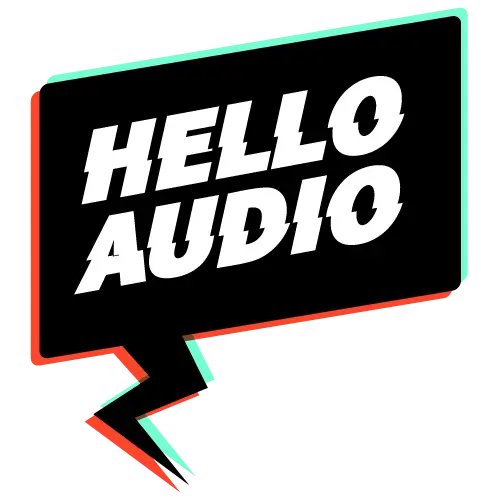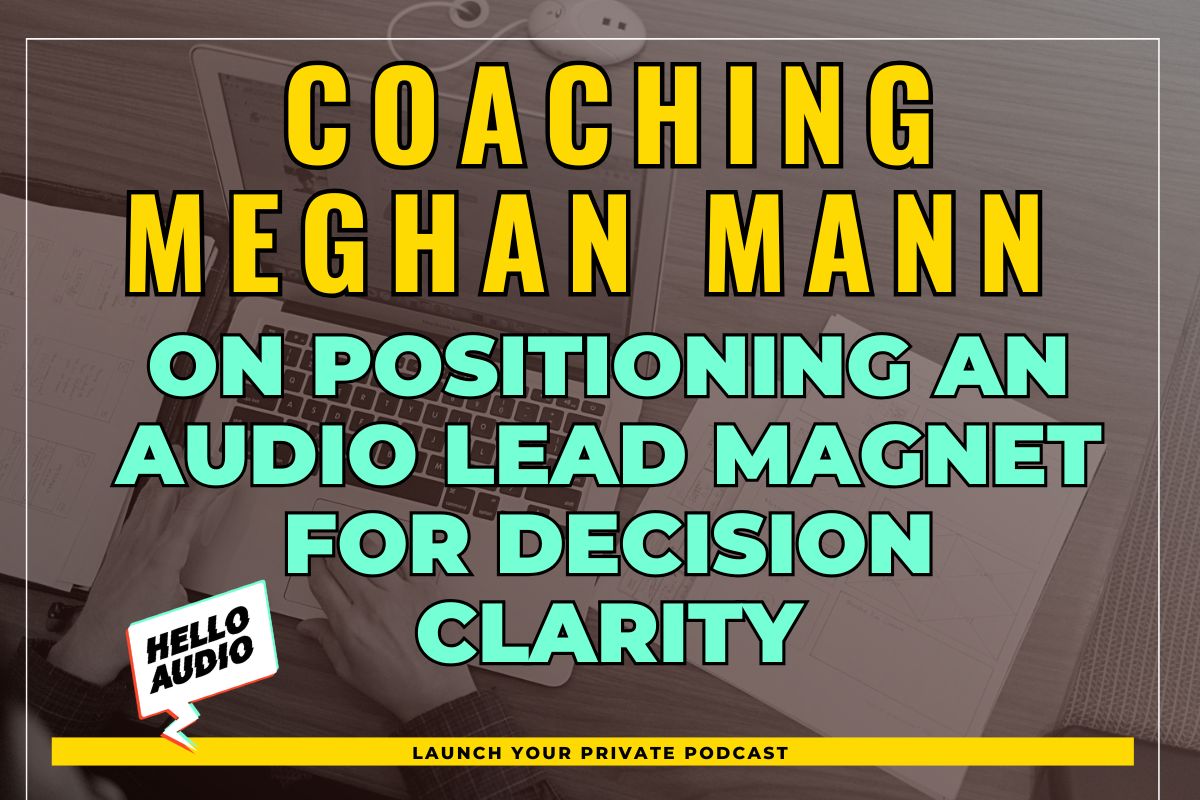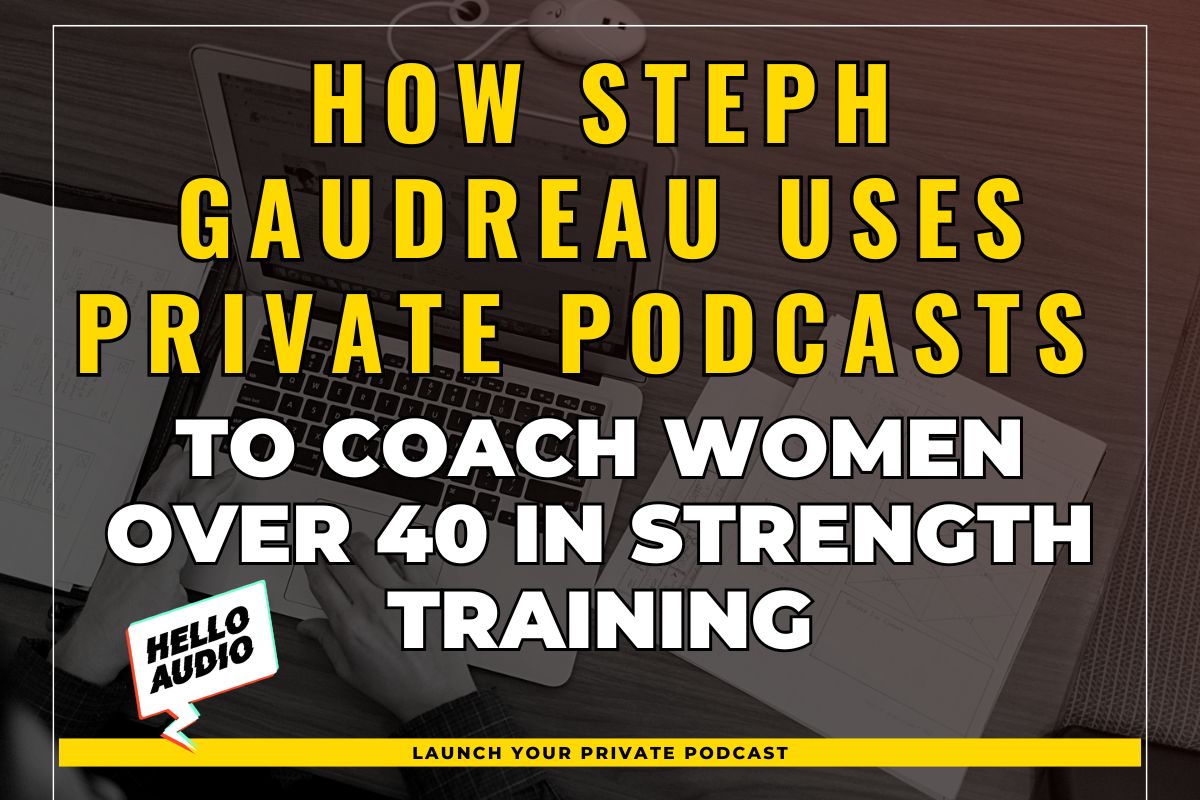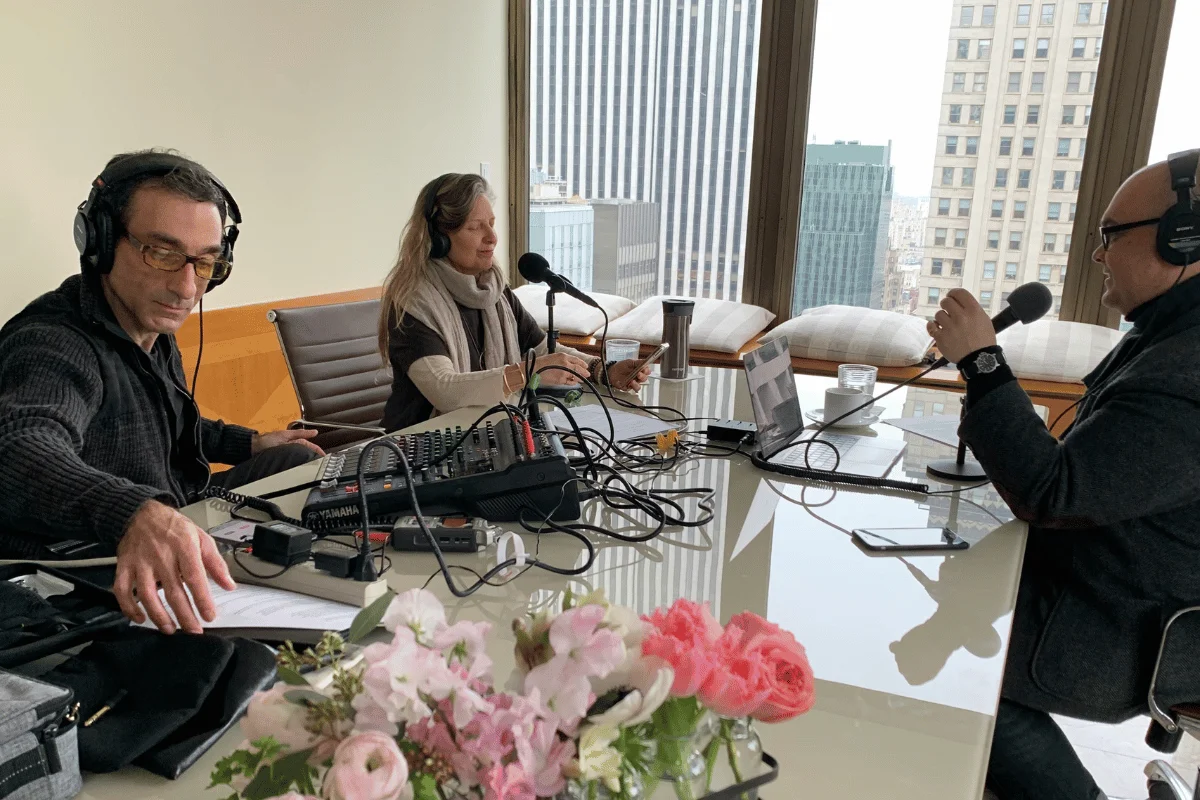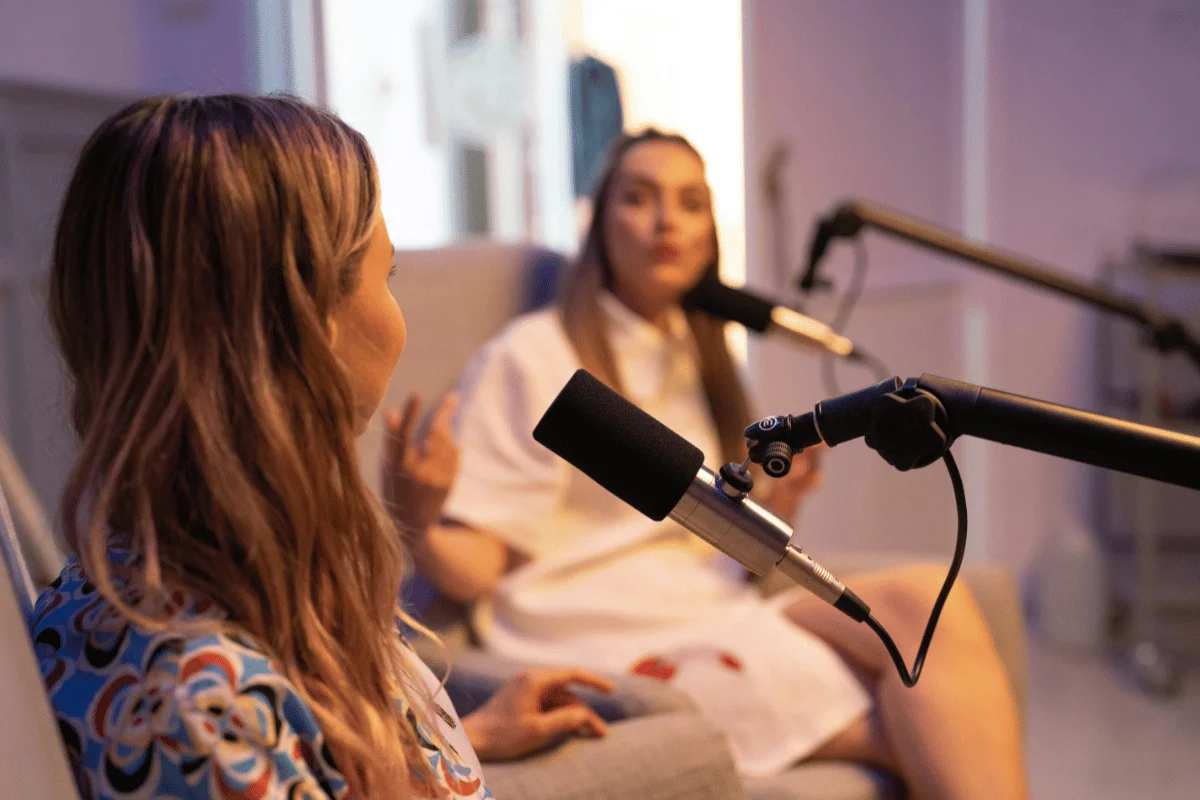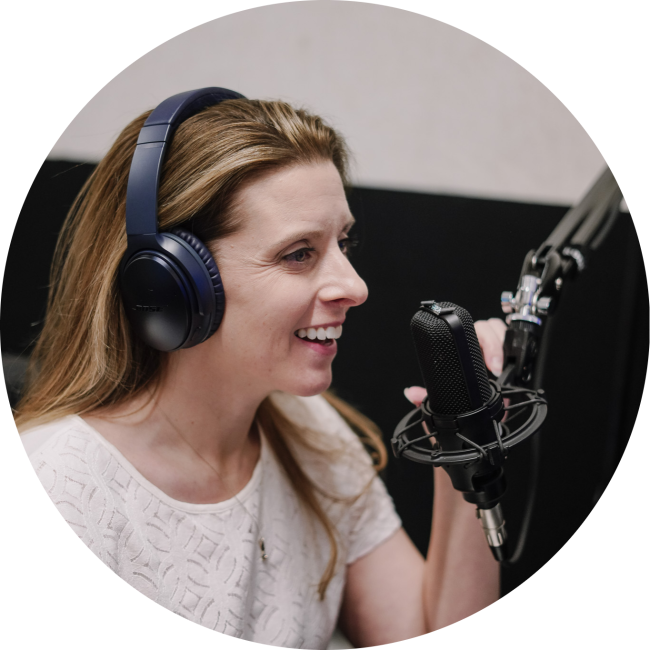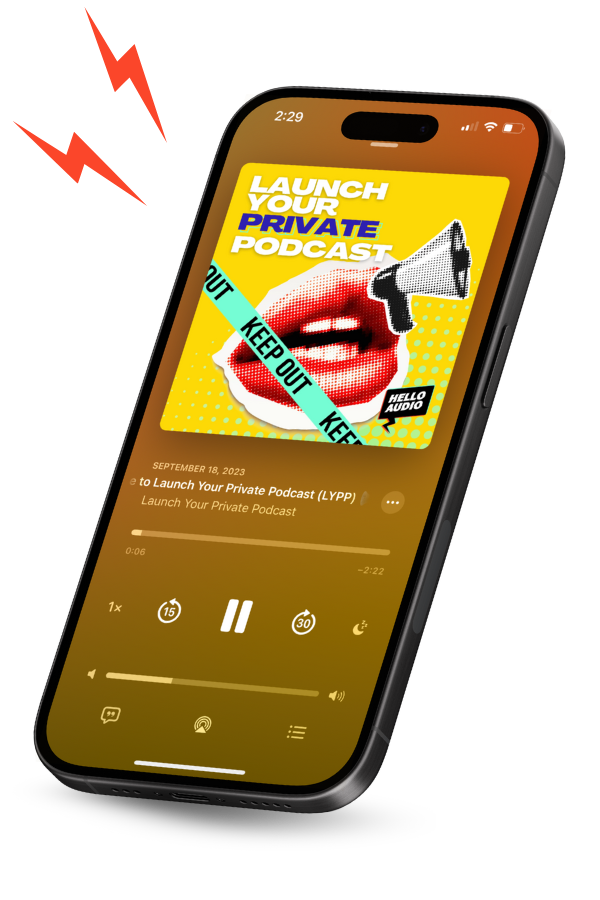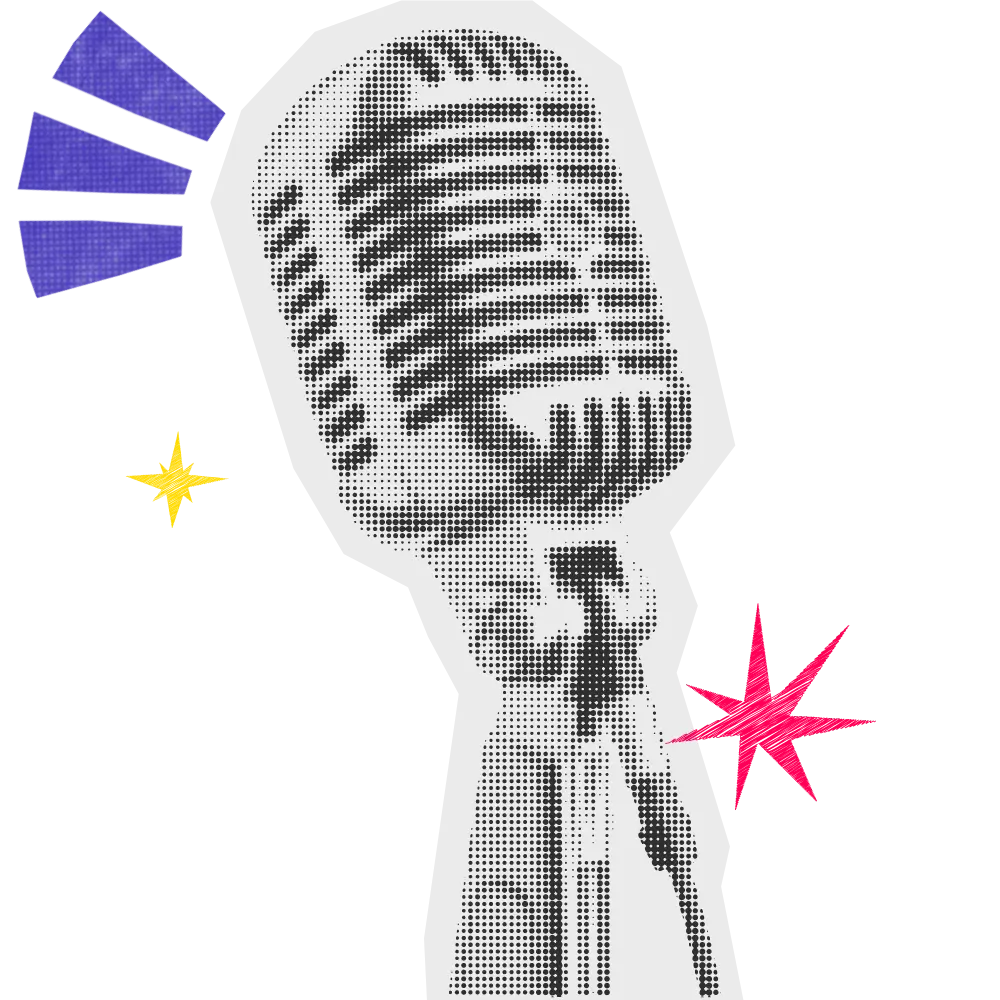Wondering why any podcaster would want to write a script? After all, you’re supposed to talk to your listeners, not write stuff down.
Well, yes, but the secret to a great podcast show is a well-drafted script and high-quality audio (and video).
If you’ve never written one before, don’t sweat it.
In this guide, you’ll master the art of crafting a podcast script and learn the best practices to help you nail your next podcast show.
Let’s dive right in.
TL;DR – How to Write a Podcast Script
Want to craft the perfect script?
Here’s a quick rundown of the 5 steps to follow when writing a podcast script. Keep reading for a comprehensive overview.
- Understand your audience
- Plan your podcast format, structure, and style
- Decide on the length of your script
- Keep it relatable and memorable
- Edit, test, and refine your script
With these scripting tips, you can take your podcasting experience to the next level.
Once ready, use Hello Audio to help launch and manage your private podcasts. Get our free trial today (no credit card required) to start creating your podcasts in minutes.

7 Common Podcast Script Elements
The specifics of a script for a podcast depend on your show.
However, these are the components of a well-written podcast script:
1. Intro
Your podcast intro script sets the tone for your show and lays out vital details for your audience to connect with you. A good intro tells your listeners who you are, what your show is about, and why they should listen to you.
Well-structured intros should be:
- Approximately 30 seconds or less
- Short and welcoming
- Have a tailored music track or brand sound effects
- May include a CTA like asking your listeners to follow you
2. Guest Intro
Next, you must introduce your guest if you have an interview-based podcast. So, you must write down your guests’ information and ensure you get it right. Still, you should create an introduction that excites your audience.
Here are tips to keep your guest intro memorable and engaging.
- Stating their profession or their area of expertise
- Sharing a compelling snippet of your guest’s story
- Keeping it short, compelling, and to the point
- Making it fun, witty, and engaging
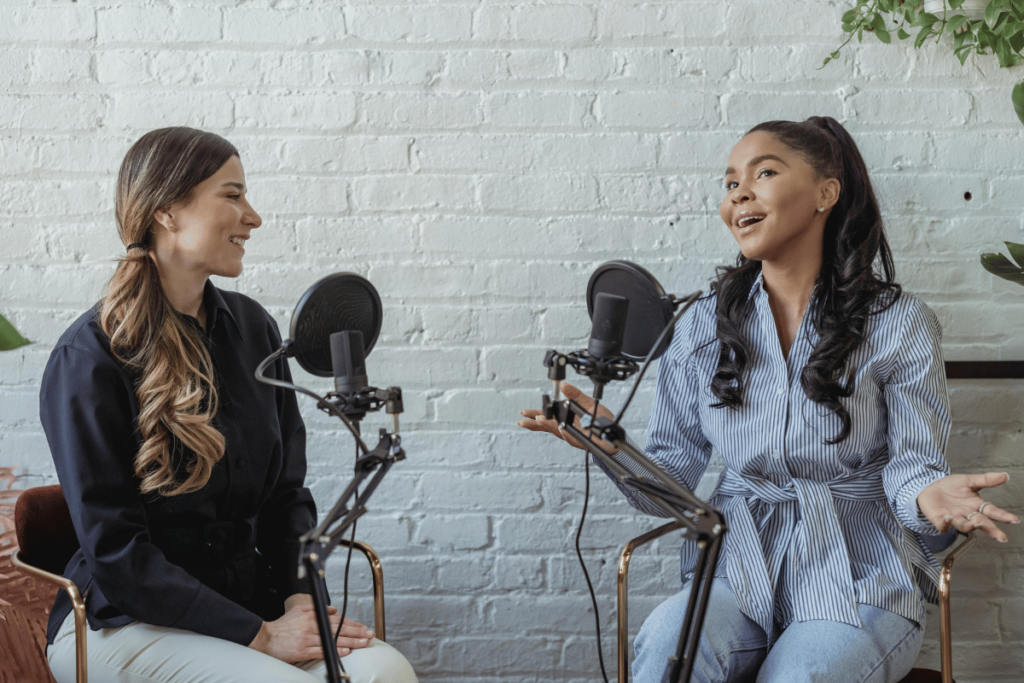
3. Sponsor Message
Depending on your sponsorship deals, you can insert the sponsor message in the intro or outro.
Also, some sponsors send fully scripted messages you should use in your show. Others send you an outline of the critical points. So you and your co-host can match your style.
Either way, you ought to plan for your message from your sponsor, including:
- Plan where to insert the message in your podcast
- Match the message to the tone and style of your show
- Make the message sound natural, authentic, and engaging
4. Segue
Your show will likely have several components, and it’s crucial to plan transitions (segues) that flow seamlessly and naturally.
The segues can include sound effects, vocal phrases, or a clip of your show’s music. Remember to stick to the transition that matches your show’s style.
5. Summary
This section wraps up all the key takeaways from the episode as briefly as possible. It should maintain your listeners’ interest but not give all your content away.
Here are some tips when writing your summary:
- It should be fun and easy to read
- Cover the main points in bullet points for clarity
- Highlight guests that appeared and what makes them special
- Create short and punchy statements
- Incorporate keywords and phrases that relate to your episode

6. Podcast Outro Script
The outro is the end of your podcast. Want a great outro?
Follow these tips:
- It should be short, but also leave an impression
- Clear and easy to follow
- Show appreciation to your listeners and guests for joining you
- Include a teaser for upcoming episodes
- Add some music or sound effects that align with your content
7. Call to Action (CTA)
A podcast CTA is when you ask your audience to take some action. For example, a CTA can invite listeners to subscribe to the podcast, follow you on social media, sign up for your newsletter, or buy tickets to an event.
Best practices for your CTA are:
- Keep it short and simple
- Keep it natural and compelling
- Strategically place CTAs in different parts of the episode
- Limit the number of CTAs to 2 to 3 for each episode
Next is to tie all these elements together into a compelling podcast script. But before we do that, let’s look at the best practices to write top-notch podcast scripts.

Podcast Script Best Practices
You should know these tips to optimize your scripts and ensure your show reaches its full potential.
Here’s what you should do:
- Keep it simple: Don’t pack your script with too many details to keep your audience engaged and maintain their attention. Also, keep the script conversational, like you are chatting with a friend.
- Leave room for free-flowing interactions: Although your podcast script acts as a foundation, leave room in your script for impromptu conversations to elaborate on a point or tell an anecdote.
- Add delivery notes: Add notes on where you’ll add emphasis, laughs, pauses, and rhetorical questions to make your episode sound more natural.
- Add timestamps: Allocate the estimated timestamps on each segment to help you know how long you’ll take on your episode.
Now that you know the best tips, you can start writing your script. Check out our next section to learn how to do so.
How to Write a Podcast Script
The best podcasts start with a well-done script.
Here’s how to craft an excellent podcast script in 5 steps:
1. Understand Your Audience
Before you start writing your script, understand your listeners and the topics that interest them.
To understand your ideal listener, you should:
- Consider their age, gender, and lifestyle
- Check their listening behavior, interests, and values
- Gather insights on your listeners’ needs and pain points
- Do proper research on your main message and get all the facts and information that support your topic
Knowing your listeners will help you tailor content that suits them.

2. Plan Your Podcast Format, Structure, and Style
A well-crafted script of a podcast should have a consistent structure and format to guide you and your listeners through the podcast.
So, you may want to decide on the type of podcast:
- Story-telling
- Roundtable
- Interview
- Narrative
- Fiction
- Panel
- Q&A
- Solo
Depending on your chosen format, mix and match the elements that will work for your show, including an intro, hook, teaser, transitions, a call to action, and an outro. Also, each element should flow from one section to another.
3. Decide on the Length of Your Script
The length of your script will determine the duration of your episode. Once you’ve figured out the optimal length, let your script convey the main points to keep your listeners hooked.
4. Keep It Relatable and Memorable
Don’t forget to write your script in a conversational, simple, and natural tone. Add humor, personality, and emotion to make your podcast more authentic and connect with your audience.
Avoid complex and jargon words, or use long sentences that bore your listener. Still, incorporate pauses and rhetorical questions.
5. Edit, Test, and Refine Your Script
You need to edit out unnecessary information and keep your podcast script concise and focused. Also, stick to your main topic and support it with facts, examples, and stories.
Before you launch your podcast, read your script aloud and record yourself to test how it sounds. Revise the tone and style to make your script more natural and engaging. You should also ensure your message is clear to avoid errors and the need to clean up your audio recordings.
It’s time to see what your podcast script could look like. Check out the next section.
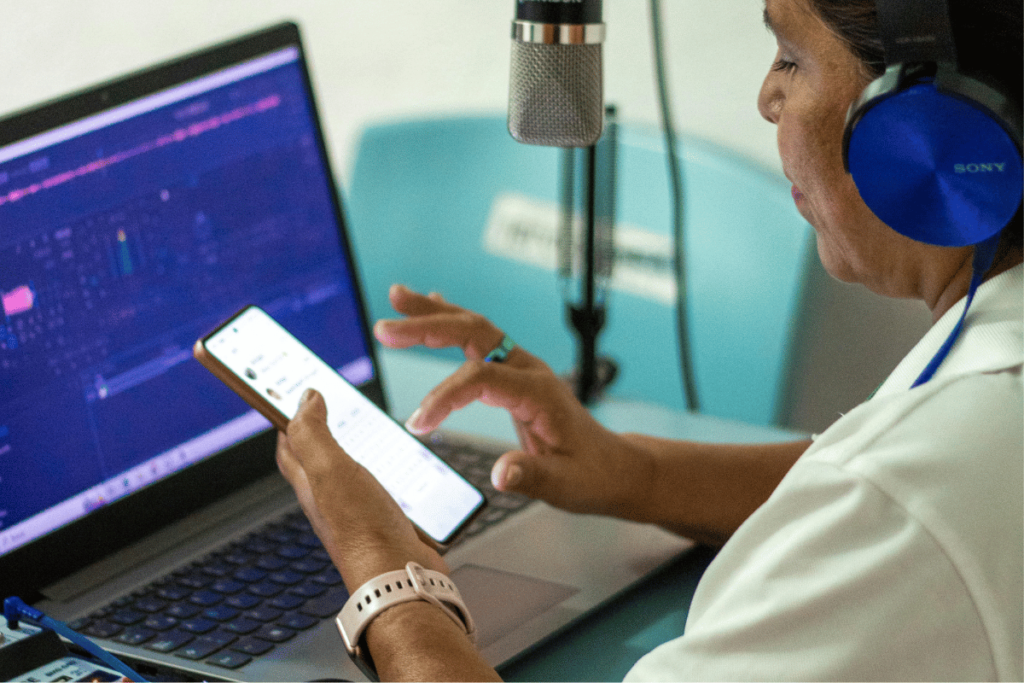
Podcast Script Example for Inspiration
To put it into context, check out this illustration:
- Intro: Briefly introduce yourself, your podcast name and description, and your guests. (Indicate the Duration )
- [Theme Music]
- Guest Intro: Briefly mention their title, expertise, and relevant achievements. Thank them for joining your show
- [Sponsor Message]
- [Topic 1] –(Indicate the Duration)
- [Topic 2] –(Indicate the Duration)
- [Segue]
- [Topic 3] –(Indicate the Duration)
- Outro: (Indicate the Duration)
- Summary
- Call to Action
-
- [Theme music/vocal phrase/sound effects]
AI Podcast Script Generators You Can Explore
Want to know how to generate a podcast script faster? Harness AI tools like the ones below to work for you.
- Ahrefs: It’s well-known for its SEO tools and resources. In addition, it offers a script generator where you can input your prompt.
- Nolan: It has writing software that helps you generate podcast scripts. It can also provide suggestions on how to edit and format your script.
Although these AI tools can generate scripts, they cannot help you distribute, host, or build a targeted audience.
So, if you’re looking for top-notch podcast platforms that engage your target audience, consider Hello Audio. Our tool lets you create high-quality private podcasts from your existing content in minutes and delivers your audio to all the listening podcast apps like Overcast, Apple Podcasts, and more.
So, why wait? Book an instant demo and check it out today.

Frequently Asked Questions (FAQs)
Check out the FAQ section below to get answers to common questions about podcast scripts.
How Long Should a 15-Minute Podcast Script Be?
Generally, the length of your script varies according to the show’s message. A 15-minute podcast should be approximately 2,000 words. Remember, as you become a pro, you might say more words in the same amount of time.
What is the Structure of a Podcast Script?
Simply, the structure of a script splits an episode into three parts — the intro, the body, and the outro.
Still, in these three segments, you should include elements that make up your show and help you tell a story that engages your audience.
Do Podcasters Follow Scripts or Talk From an Outline?
Some podcasters follow scripts, especially when hosting a solo show.
When hosting interviews and panel podcasts, you might speak from an outline to allow a free-flowing conversation with your guests.
Conclusion
A well-written script will make your podcast sound effortless to your listeners and minimize mistakes.
First, understand your audience; then, plan your podcast structure and format. The next step is to decide on the length of your script and start crafting it. Make sure it’s simple and relatable. Once that is done, the last step is to edit and refine your script.
Overwhelmed with creating podcast scripts?
Use Hello Audio to repurpose your pre-existing video and audio into custom private podcasts. It also has all the features you may need, including transcribing episodes and in-depth analytics of your listeners’ behavior.
Start your free trial today and launch your podcast in minutes.

